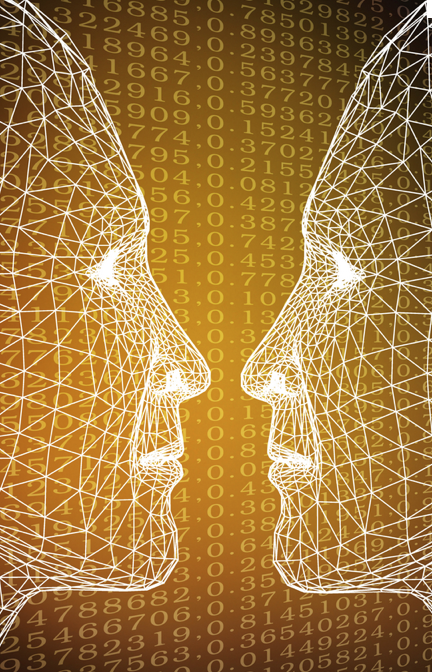Suddenly, as a result of discontinuities or critical thresholds characteristic of the coevolution of knowledge, the computer has emerged as a tool of choice for observing and simulating the infinite complexity of life, of society, and of the ecosystem—and above all, as a tool for acting on it. (Joël de Rosnay, The Symbiotic Man)
The Brain Sees, but does the Mind Understand?
As the above quote suggests, Joël De Rosnay goes further than most futurists in his discussion of the transformative impact of computers on everyday life. “This hybrid life, at once biological, mechanical, and electronic, is still coming into being before our very eyes. And we are its cells. In a still unconscious way, we are contributing to the invention of its metabolism, its circulation and its nervous system. We call them economies, markets, roads, communications networks, and electronic highways, but they are the organs and vital systems of an emerging superorganism that will transform the future of humanity and determine its development during the next millennium.” (Xii-xiii)
This is an extraordinary statement and yet there are elements to what de Rosnay is suggesting that must be examined with great seriousness. He is beginning to talk about merging human biology and the way it functions, with digital technologies organized by the programming systems that govern them. As a result, Western societies are developing, albeit tentatively, a completely different understanding of the body and thinking in very different ways than they ever have about the relationships that humans have created with the many devices that surround them.
De Rosnay does not simply collapse technology and the human body. That is not his purpose. Rather, and more importantly, he understands the connections that bind people together. He explores the links that have been created — the webs that join people, their environment and their governments, as well as their cultures, their economies and most importantly their technologies — all of these are at the heart of a new understanding of what it means to be human.
In making this statement, I am aware of its many pitfalls, not the least of which is that there is no clear way of anticipating the outcome of the changes that are presently being experienced. However, there is no doubt that the convergence of biology and technology means that the conventional definitions of human identity and subjectivity will undergo a profound alteration. (Francis Fukuyama offers a very negative evaluation of these changes in Our Posthuman Future: Consequences of the Biotechnology Revolution, 2002)
Much will have to be learned about how to discriminate between differing definitions and explanations of what it means to be human. Most importantly, baseline assumptions about reality will have to change to reflect the integration of image-based virtual worlds into everyday life.
More on this in my next post…
